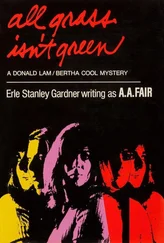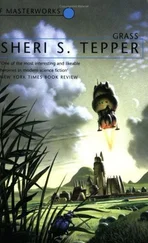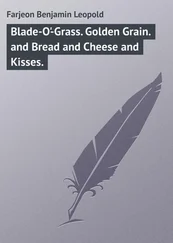Frankfurter billeted himself in the Lion. He had to wait until Tuesday, 4 February. In Genesis, on this day of the week the expression “Ki tov,” indicating that God saw that the Creation was good, appears twice, for which reason Jews consider Tuesday a lucky day — I picked this up on the Internet. On the home page, by now so familiar, this date was dedicated to the memory of the martyr.
Smoking in the sun on hard-crusted snow. Every step crunched. Monday was spent on seeing the town. Back and forth, back and forth along the main promenade. Watching an ice hockey game, an unobtrusive spectator among other spectators. Casual conversations with visitors to the resort. His breath forming a white cloud. Avoid arousing suspicion! Not a word too many. Nice and easy. Everything was prepared. He had bought a revolver without the slightest difficulty and had practiced at the Ostermundingen shooting range, near Berne — all perfectly legal. Sickly though he was, his hand had proved steady.
On Tuesday, close to his destination a weatherproof sign, wilhelm GUSTLOFF NSDAP, came to his aid: from the main promenade a street called Am Kurpark, branched off, leading to house number 3. A watery blue stuccoed building with a flat roof, its gutters garnished with icicles. Few streetlights to hold the gathering darkness at bay. No snow falling.
So much for the scene from outside. Additional details held no significance. How the deed itself unfolded, only the perpetrator and the widow could say later on. I accessed the interior of the portion of the house in question with the help of a photograph inserted beside the indented text on the aforementioned home page. The photo was apparently taken after the crime, for three fresh bouquets of flowers on various tables and a dresser, along with a blooming flowerpot, lend the room the air of a shrine.
When the bell rang, Hedwig Gustloff opened the door. A young man, whose “nice eyes” she mentioned in her testimony, asked to see the Landesgruppenleiter. He was standing in the corridor, speaking on the telephone with Party member Dr. Habermann from the local office in Thun. As he passed him, Frankfurter allegedly heard him saying “Foul Jews,” which Frau Gustloff later disputed: she averred that such terms were foreign to her husband, although he did consider the solution of the Jewish Question urgent.
She escorted the visitor into her husbands study and invited him to have a seat. No suspicion. Petitioners often came unannounced, including fellow Nazis in financial difficulties.
As the medical student sat there in his armchair, still in his coat and with his hat on his knees, he could see the desk, on it a clock in a slightly curved wooden case, and on the wall above it the honorary SA dagger. Above and to the side of the dagger hung an assortment of pictures of the Führer/Reich chancellor, room decor in black and white and color. No picture of Gustloff s mentor, Gregor Strasser, murdered two years earlier. To one side a model sailing ship, probably the training vessel Gorch Foch.
As he waited, the visitor, who forbade himself to smoke, would also have been able to see the radio on a chest of drawers next to the desk, and beside it a bust of the Führer, in either bronze or plaster painted to look like bronze. The cut flowers on the desk that appear in the photograph may have filled a vase before the deed, lovingly arranged by Frau Gustloff to welcome her husband home after a strenuous journey, also as a belated birthday greeting.
On the desk, odds and ends and loosely stacked papers: perhaps reports from the cantonal Party chapters, doubtless also correspondence with offices in the Reich, probably a few threatening letters, which had been arriving frequently of late; but Gustloff had refused police protection.
He strode into the study without his wife. Straight-backed and robust, having shaken off his tuberculosis years before, he advanced in civilian dress toward his visitor, who did not rise from the armchair but fired from a seated position only seconds after he drew the revolver from his overcoat pocket. Well-aimed shots made four holes in the Landesgruppenleiters chest, neck, and head. He collapsed, without crying out, under the framed pictures of his Führer. In no time his wife was in the room, first catching sight of the revolver still aimed at its target, then seeing her fallen husband, who, as she bent over him, was bleeding to death from all the wounds.
David Frankfurter, the traveler with a one-way ticket, put on his hat and left the site of his premeditated deed, without being detained by the building's other residents, who by this time had become aware that something was going on. He wandered around in the snow for a while, slipping and falling several times, had the emergency number memorized, named himself as the perpetrator from a telephone booth, eventually located the nearest police station, and turned himself in to the cantonal police.
He made the following confession to the officer on duty and later repeated it in court without changing a word: “I fired the shots because I am a Jew. I am fully aware of what I have done and have no regrets.”
After that a great deal appeared in print. What Wolfgang Diewerge characterized as “a cowardly murder” turned in the hands of the novelist Emil Ludwig into “Davids struggle with Goliath.”These diametrically opposed assessments have survived into the digitally networked present. Before long everything that followed, including the trial, outgrew the perpetrator and his victim and assumed mythic significance. The hero of biblical proportions, who hoped his clear-cut act of defiance would summon his tormented people to resistance, was juxtaposed with the martyr for the National Socialist movement. Both were supposed to find their places in the book of history, figures larger than life. The perpetrator, however, soon sank into obscurity; even Mother, when she was a child and was called Tulla, never heard anything about a murder and a murderer, only fairy tales of a gleaming white ship that took loads of merry folk on long and short cruises for an organization calling itself Strength through Joy.
* * *
While i was still a foot-dragging student living off the generosity of others, I attended the lectures given by Professor Höllerer at Berlins Technical University. He captivated the overflowing crowd in the lecture hall with his piercing birdlike voice. His subject matter was the dramatists Kleist, Grabbe, and Büchner, all geniuses on the run. One of his courses was called Between Classicism and Modernism. I liked hanging out in the Waitzkeller among the young literary types and still younger girls, booksellers' apprentices. Here unpolished literary attempts were read aloud and critiqued. At the Literary Colloquiums branch on Carmerstrasse I even took a course based on the American notion of teaching creative writing. A good dozen promising fellow students, some with actual talent. I didn't have the right stuff, I was told firmly by one of the instructors, who was trying to prod us beginners with topics like Spiritual Help Line into taking epic leaps. The best I could hope to produce was trashy novels. But now he has hauled me out of the pit into which he cast me back then, declaring that my botched life has its origin in a unique event, an exemplary event, an event worthy of being told.
Some of the talents from that era are already dead. Two or three of them made a name for themselves. My old instructor, however, seems to have written himself dry; otherwise he would hardly have pressed me into service as a ghostwriter. But I've had enough of this crab-walk. I keep getting stuck. I tell him its not worth it. Both of those fellows were nutcases, one no better than the other. Sacrificing himself to give his people an example of heroic resistance — don't make me laugh. The Jews weren't one iota better off after the murder. On the contrary! Terror was the law of the land. And two years later, when the Jew Herszel Grynszpan shot the German diplomat Ernst von Rath in Paris, the Nazis' response was the Night of Broken Glass. And what good did another martyr do the Nazis, I wonder. Well, all right, they named a ship after him.
Читать дальше











